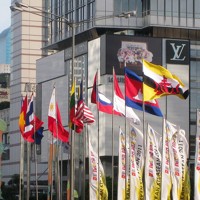As a region that includes some of the world’s most resilient autocracies, Asia has traditionally found democracy to be a difficult subject. Popular conceptions of the region are dominated by the ever-increasing influence of China, the world’s most powerful authoritarian state, and media reports often depict a region of resiliently nondemocratic regimes, ranging from North Korea’s family-based despotism to Myanmar’s repressive military junta.
This viewpoint is out of date. Today, more Asians live in genuine democracies than ever before, and Asian regimes are increasingly using their democratic status to raise their profile in the international arena. Indonesia, with a keen eye on its global role as the world’s largest Muslim democracy, has become an outspoken advocate of democracy beyond its shores. New or restored democracies ranging from Mongolia in the north to East Timor in the south have joined South Korea, Taiwan and the Philippines as genuine “Third Wave” democracies in which governments are chosen and changed via the electoral process. With the long-awaited political openings currently taking place in Myanmar and recent democratic gains in Thailand, Malaysia and Singapore, Asian democrats have reasons for optimism.
Optimism is important, because for many Asian countries, this marks a second or even third attempt at getting democracy right. Emerging from colonialism at the end of World War II, numerous Asian states tried, and mostly failed, to build competitive political systems. Success stories like India, Japan and the Philippines all acquired their democratic systems as a result of foreign occupation, colonial rule or decolonization. Independent Myanmar (then known as Burma), Malaysia and Indonesia also began life as democratic regimes, but quickly succumbed to a combination of political immobility and ethnic rebellion in the 1950s and 1960s. While painful for ordinary citizens, this regression often suited the interests of both domestic elites and the West, as national unity in the face of the communist threat was seen by both as more important than domestic freedoms.

